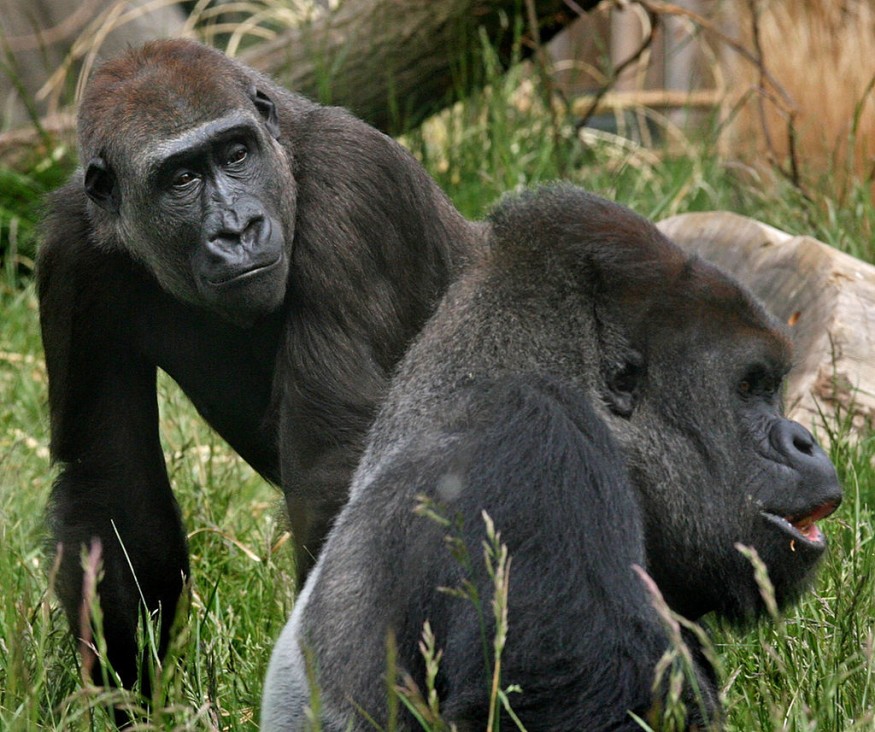
Three gorillas at the San Diego Zoo reportedly tested positive for COVID-19, the Associated Press says. It is the first reported occurrence of the coronavirus infecting a primate in the United States and probably the planet.
It was reported that they got the virus in confinement as the zoo was closed since December 6. Gorillas are considered endangered animals and share 98.4 percent of their DNA with humans, causing conservation researchers to fear further infection.
According to the zoo's executive officer, Lisa Peterson, experts observed some gorillas coughing. But she told AP that the gorillas are fine except for the occasional congestion and coughing.
How the Gorillas Acquired COVID-19
Peterson said the three sick gorillas presumably acquired the infection from an asymptomatic zoo employee. She says the zoo has stringent infection control procedures, including a regular personnel questionnaire and complete safety suites for anyone in close interaction with animals.
Two of the gorillas started coughing first on January 6. Zoo workers gathered fecal samples and submitted them to the Animal Welfare and Food Protection Laboratory System in California. On January 11, the lab and the National Veterinary Services Laboratories (NVSL) of the USDA reported the outbreak.
The infected gorillas are lethargic and have runny noses. The animals are a bit more tempered in their movements, Peterson notes, but they get fluids and feed good.
Peterson said the gorillas, who reside in a troop of eight, are expected to recover. Caretakers preferred to shelter the eight gorillas together and closely track them.
This news supports earlier research that, along with many other uncommon or vulnerable primates species, critically endangered gorillas are particularly susceptible to SARS-CoV-2, the virus that triggers COVID-19.
"In both captive and wild populations of endangered primates, the risk for COVID-like disease outbreaks is very strong," Harris Lewin, a respected professor of ecology and evolution at the University of California, Davis, told National Geographic in November.
In the wild, less than 5,000 gorillas exist. Since they reside in near family communities, researchers fear that the outbreak will propagate rapidly and imperil already precarious societies if one gets the virus.
Gorilla's COVID-19 Transmission 'Alarming'
Dan Ashe, president and CEO of the American Zoological Association (AZA), told National Geographic by email that gorillas' positive testing is "concerning." Still, he has "full confidence" that any care is taken by the San Diego Zoo employees.
The Bronx Zoo, San Diego Zoo Safari Park, and Louisville Zoo, both reported incidents of zoo animals transmitting the coronavirus in the U.S. have been at AZA-accredited facilities, all of which meet stringent hygiene guidelines, Ashe states.
However, there are others which lack competence and professionalism, especially in unaccredited zoos. It is unclear how many animals have been screened or could have transmitted the infection if any.
Gorillas became the seventh animal species to have acquired the virus spontaneously following reported outbreaks in dogs, domestic cats, lions, mink, snow leopards, and tigers.
The coronavirus has not impacted animal species about as much as humans. But a tiger tested positive last April at the Bronx Zoo in New York.
In November, Denmark culled more than 15 million mink during an epidemic of a mutant strain of the coronavirus. Some feared it might have become immune to the vaccinations that were in production at the time if the latest virus was transmitted to humans.
Check out more news and information on COVID-19 on Science Times.












